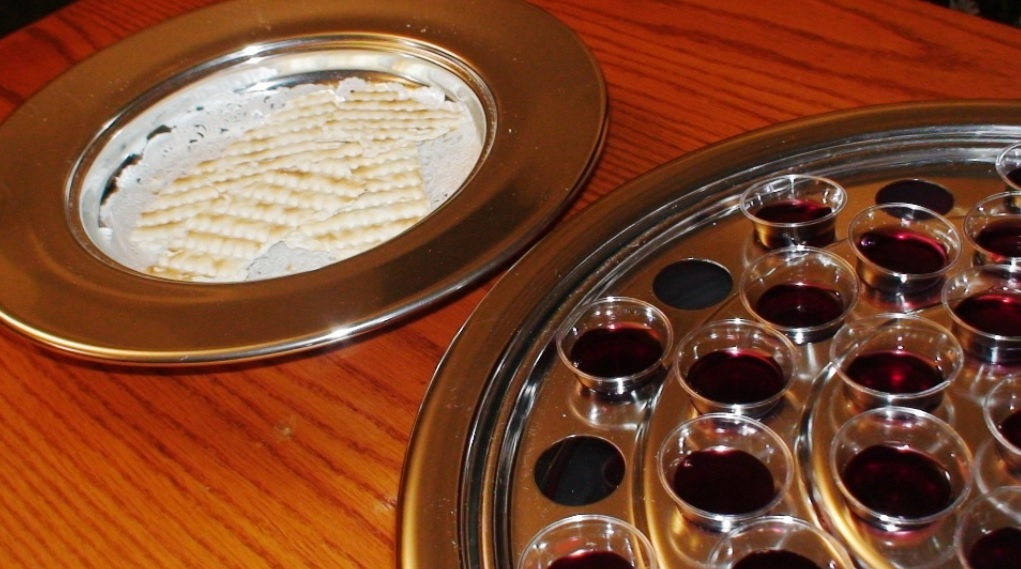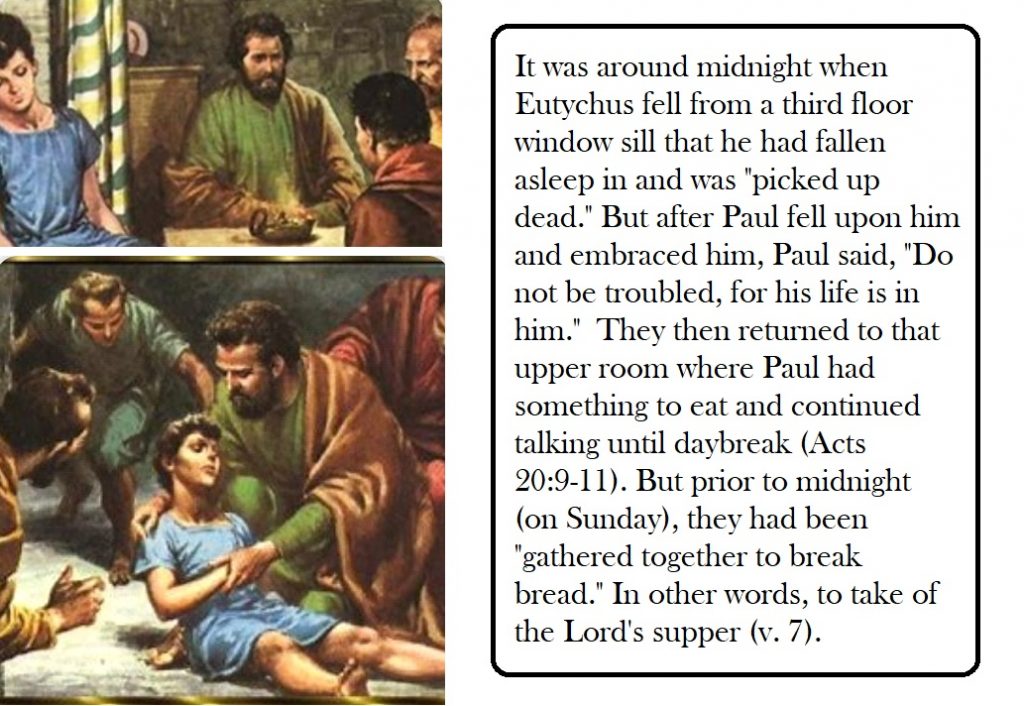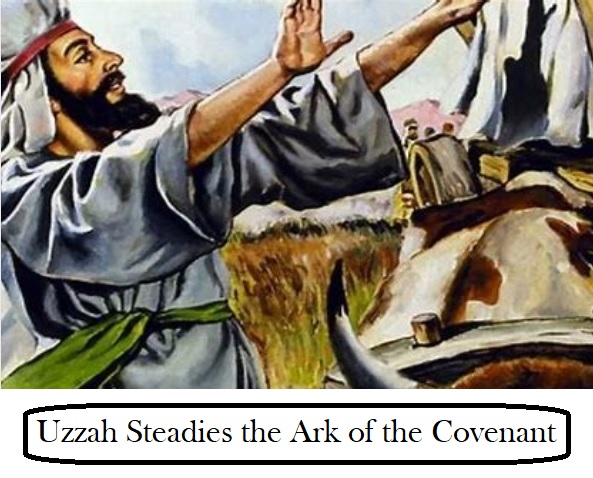“Go therefore and make disciples of all the nations…teaching them to observe all that I commanded you; and lo, I am with you always, even to the end of the age” (Matthew 28:19-20, NASB).
——————–
Contents:
1) The Lord’s Supper (Kyle Pope)
2) News & Notes
——————–

-1-
The Lord’s Supper
Kyle Pope
As the children of Israel were coming out of their bondage in the land of Egypt, the Lord instituted a memorial that the Israelites were to keep as a reminder of the great deliverance God granted them from the final plague that struck the Egyptians. While the Lord struck dead the first born of everyone in Egypt, those who observed the Lord’s instructions among the Jews were spared this horror. From that time forward the Jews were to keep the Passover meal each year in memory of when death had “passed over” their people (see Exodus 12). It is not coincidence that on the night that Jesus observed the Passover with His disciples, He instituted a similar memorial of His death for the children of God under the New Covenant.
The Institution of the Lord’s Supper
The gospels of Matthew, Mark, and Luke all record the Lord’s institution of this memorial (Matt. 26:26-29; Mark 14:22-25; Luke 22:17-20). In addition to this the apostle Paul in First Corinthians, in response to the Corinthian’s abuse of the memorial, recounts the Lord’s institution of the Lord’s Supper (1 Cor. 11:23-25). Let us observe what was involved in this institution.
1. “Then came the Day of Unleavened Bread, when the Passover must be killed” (Luke 22:7, NKJV). As Jesus met with His disciples on the night before His death, it was to observe the Passover meal. In accordance with the Law of Moses, His disciples had prepared a place for them to eat the meal (Luke 22:8-12). This involved removing all leaven from the house where the memorial was to be observed. The Passover began a period of seven days in which no leaven could be in their houses at all (Exod. 12:6, 15-18).
2. “And He took bread, gave thanks and broke it, and gave it to them, saying, ‘This is My body which is given for you; do this in remembrance of Me’” (Luke 22:19). While eating the Passover, Jesus took of the unleavened bread and gave thanks to God for it. He then broke the bread and gave it to each of the disciples. Both Matthew and Mark record His instruction, “Take, eat” (Matt. 26:26; Mark 14:22). Then Jesus told His disciples, “This is My body.” With this, Jesus set forth the significance of what was being done. The bread was a figure of Jesus’ body that was “given” (Luke 22:19) and “broken” (1 Cor. 11:24) for His disciples. This was not to be done to satisfy hunger, but was to be done “in remembrance” of Jesus.
3. “Then He took the cup, and gave thanks, and gave it to them, saying, ‘Drink from it, all of you. For this is My blood of the new covenant, which is shed for many for the remission of sins’” (Matt. 26:27,28). This cup, Jesus Himself called the “fruit of the vine” (Matt. 26:29; Mark 14:25 and Luke 22:18). It was to be a figure of the blood that Jesus would shed of the forgiveness of man’s sins. As with the bread, Paul tells us that Jesus told his disciples, “this do, as often as you drink it, in remembrance of Me” (1 Cor. 11:25).
Observance of the Lord’s Supper
The Bible offers us at least three examples of the observance of the Lord’s Supper among churches in the New Testament: 1) The church in Jerusalem; 2) The church in Troas, and 3) The church in Corinth.
1. The church in Jerusalem. After the outpouring of the Holy Spirit on the day of Pentecost, recorded in Acts chapter two, the Bible describes the establishment of the church in Jerusalem. After Peter and the others taught the people, the Bible tells us that 3,000 souls heeded their message and were baptized (Acts 2:41). We are then told about the conduct of the church. Included in the list of their activities, we are told that the Christians there continued steadfastly “in the breaking of bread” (Acts 2:42).
2. The church in Troas. As Paul traveled teaching he came to the ancient city of Troas in modern day Turkey (Acts 20:6). While there Scripture tells us, “Now on the first day of the week, when the disciples came together to break bread, Paul, ready to depart the next day, spoke to them and continued his message until midnight” (Acts 20:7).
3. The church in Corinth. In First Corinthians Paul refers to the Corinthians’ observance of the Lord’s Supper in two passages. The first comes in the midst of a discussion about Christians separating themselves from idolatry. In this passage Paul emphasizes that just as partaking of the bread and fruit of the vine unites Christians with the Lord and one another, if Christians eat things sacrificed to idols they unite themselves with idolatry (1 Cor. 10:15-22). The second reference addresses an abuse of the memorial that the Corinthians had committed. Instead of treating the Supper as the memorial observance the Lord intended, they had turned it into a common meal. Paul rebuked them, restates the details of the institution of the memorial, teaches them to eat at home for hunger, and commands them to observe the memorial with the right attitude (1 Cor. 11:17-34).
Names of the Lord’s Supper
• The Lord’s Supper. Paul uses the phrase most frequently used in this study in First Corinthians 11:20 referring to the memorial as “the Lord’s Supper.”
• Communion. In the tenth chapter of First Corinthians Paul refers to the cup as “the communion of the blood of Christ” (10:16a) and the bread as “the communion of the body of Christ” (10:16b). The word translated “communion” is the Greek word koinōnia (κοινωνία) most frequently translated “fellowship” in the English New Testament. It is defined as “joint participation” (Thayer). In the institution of the Lord’s Supper, Jesus said, “Assuredly, I say to you, I will no longer drink of the fruit of the vine until that day when I drink it new in the kingdom of God” (Mark 14:25). The Christian who properly partakes of the Lord’s Supper is spiritually participating with Christ in the observance.
In the same passage where Paul speaks of the memorial as the communion of the body and blood of Christ, three other terms are used to refer to the elements of the Lord’s Supper.
• The Cup of Blessing. The communion of the blood of Christ is identified as “the cup of blessing” (1 Cor. 10:16a).
• The Cup of the Lord. Five verses later the same element is referred to as “the cup of the Lord” (1 Cor. 10:21).
• Breaking of Bread. When Paul speaks of the communion of the body of Christ he identifies it as “the bread which we break” (1 Cor. 10:16b).
Although early church writers used the term, the Lord’s Supper was never referred to in Scripture as the Eucharist. This name was derived from the Greek verb translated “given thanks” in two accounts of Jesus’ establishment of the memorial (Luke 22:19; 1 Cor. 11:24). It is not a biblical name for the memorial.
False Teaching on the Lord’s Supper
1. “The Lord’s Supper is a Sacrament.” A sacrament is thought to be a religious act by which Divine grace is dispersed. While it is true that all things that God gives to man can rightly be considered gifts of grace (see Rom. 12:6), the Bible does not teach that partaking of the Lord’s Supper infuses a person with additional grace. Christians should observe the Lord’s Supper in obedience to Christ and for the edification it offers to us.
2. “It Becomes the Literal Body and Blood of Christ.” The Roman Catholic Church and some Protestant churches teach that the bread and fruit of the vine blessed by a priest are changed into the literal body and blood of Jesus. This stems from a misapplication of Jesus’ words in John chapter six. While Jesus taught in that text “…Most assuredly, I say to you, unless you eat the flesh of the Son of Man and drink His blood, you have no life in you” (John 6:53), He explained to His disciples at the end of the chapter that He was referring to spiritually feeding upon Jesus’ life and teaching. He clarifies near the end of the chapter “It is the Spirit who gives life; the flesh profits nothing. The words that I speak to you are spirit, and they are life” (John 6:63).
3. “It Can Be Observed Upon Any Day.” It is clear from Scripture that the observance of the Lord’s Supper was to be a congregational activity. In Paul’s rebuke to the Corinthians we see that it was to be done when Christians “come together as a church” (1 Cor. 11:18) when they “come together in one place” (1 Cor. 11:20). They were to eat at home to satisfy hunger (1 Cor. 11:34), and when they ate of the memorial they were to “wait for one another” (I Cor. 11:33). The only text that indicates a time when the memorial was observed specifies brethren coming together on Sunday—the first day of the week (Acts 20:7). While the phrase “breaking bread” can refer to either the memorial or a common meal, even when the church in Jerusalem met daily in the temple, their meals for hunger were satisfied “from house to house” (Acts 2:46).
4. “It Doesn’t Need to Be Observed Every Sunday.” It is clear that Christians met regularly on Sunday (cf. Acts 20:7; 1 Cor. 16:1-2). The only clear indication of the time upon which the Lord’s Supper was observed is Sunday (Acts 20:7). Given that no particular Sunday is specified and every week has a “first day of the week,” the only action that would truly comply with the New Testament pattern would be weekly observance.
5. “A Priest Alone Can Take the Cup.” The Bible teaches that all Christians are priests who offer up spiritual sacrifices to God (1 Peter 2:5). When Jesus instituted the memorial He gave both elements to His disciples and instructed them to partake. Matthew even reveals a specific statement Jesus made concerning the cup telling them “drink from it, all of you” (Matthew 26:27). Another person can’t drink the cup for someone else any more than another person can sing, confess Christ, or be baptized for someone else.
6. “There Must Be Only One Cup.” It is true that Paul spoke of the fruit of the vine as “the cup [singular] of the Lord” (1 Cor. 10:21) and “the cup [singular] of blessing” (1 Cor. 10:16), but this refers to unity of substance rather than the unity of container holding the substance. Technically Luke records that Jesus’ first instructions concerned dividing the contents of the cup among the disciples who were present. Luke writes: “Then He took the cup, and gave thanks, and said, ‘Take this and divide it among yourselves’” (Luke 22:17). It is after the supper that He then attached memorial significance to the cup and had them drink from the contents of the cup He had previously divided among them (Luke 22:20).
7. “The Container Represents the New Covenant.” Some have falsely argued that the container is a figure of the New Covenant based on Jesus’ statement, “this cup is the new covenant in my blood” (Luke 22:20; 1 Cor. 11:25). It is clear from the texts that He is referring to the contents of the cup and not the container. We note that it is called the new covenant “in my blood.” A container does not represent blood. It is the fruit of the vine within the container that does.
— Via Faithful Sayings, Volume 21, Issue 48 (December 1, 2019)
——————–
-2-
News & Notes
Folks to be praying for:
Pat Brigman (Tina Allen’s aunt) has stage 4 lung cancer. She is going through chemotherapy and radiation treatments at the same time and is feeling very ill.
Larry Hood (Pat Joyner’s brother-in-law) has Crohn’s disease, cancer near his eye, 4 spinal fractures, and is in much pain.
Janice Hood (Larry’s wife) has Trigeminal neuralgia and other health issues.
Elaine Abbot is still undergoing treatments of chemotherapy once a week and hemodialysis three times a week. She is physically weak and will find the wheelchair helpful that her daughter-in-law Anita has taken to her.
Rex Hadley still has the pain in his legs from ballooned disks. Concerning the covid-19 that he has had for the last couple weeks, Anita Young wrote yesterday that her dad “had a rough week, but has hopefully made a turn for the better.” He is still running a low-grade fever, is very weak, and had some chills Friday afternoon. But he is doing better than he was a few days ago.
Rick Cuthbertson has not yet begun his new cancer treatment, which will be in pill form — but he is looking forward to it with a good, positive attitude. For the first week, he will be taking 1 pill a day; 2 a day for the second week; 3 a day for the third, and 4 a day for the fourth (which will also be the final week). Following the treatments, he will then be scanned for the results.
James Medlock’s dementia has become worse lately, so he is now back in the hospital and will be having his medication adjusted.
A.J. Joyner is starting to have peripheral neuropathy, along with stomach problems. His wife Pat has numerous health issues, including COPD and scarring of the lungs called Atelectasis.
Penny Medlock, who was having trouble breathing due to covid-19, is still in ICU; but a recent test came back negative for it. She was later tested again, and the results will probably be in today (if they were not yesterday). If it is again negative, she will then be transferred to a behavioral health facility, such as St. Simons-By-The-Sea or one like it (maybe tomorrow). There she will spend a couple weeks or more (depending on how she does). If she is cleared there, she will then be transferred to a group home in Augusta, which she is looking forward to. She has been in a good mood.
Deborah Medlock’s surgery is tentatively planned for July 31. But if it will be sooner, she might find out tomorrow.
Leona “Lea” Medlock (Deborah’s daughter-in-law) has been ill for a few days. She thinks she might have covid-19, but has not yet been tested.
We are glad that things went well for Shirley Davis in her recent pace maker implant. She is feeling much better. However, she is still having kidney problems that will require seeing a doctor. Plus the pain in her shoulder and knee still bothers her, and she has UTL. I also want to mention her daughter Stephanie Jordan for prayer, who has been suffering with rheumatoid arthritis for about 20 years.
Joyce Rittenhouse wrote yesterday, concerning the pain her husband has been having, that “Doyle had his third set of two shots in the back. They are working so far, but his blood sugars are running a little high.” But “That is under control with extra insulin.” Joyce also reports that her brother, who is healing from his recent heart surgery, “hasn’t had any headaches this week.” He “is still real weak, but is getting better every day and will see his heart surgeon next Wednesday.”
Ginger Ann Montero, who had only a little of her pain eliminated in her last visit to her doctor, is now awaiting her next appointment — of which her husband Bud writes, “Second time should do the trick.”
Elizabeth Harden (Anita Young’s daughter) is expecting a baby boy January 4!
Others to also be praying for: Jamie Cates (healing from a double lung transplant), Tim Kirkland, Ray Daugherty, Jim Lively, and Ronnie Davis (allergy trouble).
——————–
The Steps That Lead to Eternal Salvation
1) Hear the gospel, for that is how faith comes (Rom. 10:17; John 20:30-31).
2) Believe in the deity of Jesus Christ (John 8:24; John 3:18).
3) Repent of sins (Luke 13:5; Acts 17:30).
4) Confess faith in Christ (Rom. 10:9-10; Acts 8:36-38).
5) Be baptized in water for the remission of sins (Mark 16:16; Acts 2:38; 22:16; Rom. 6:3-4; Gal. 3:26-27; Col. 2:12; 1 Pet. 3:21).
6) Continue in the faith, living for the Lord; for, if not, salvation can be lost (Matt. 24:13; Heb. 10:36-39; Rev. 2:10; 2 Pet. 2:20-22).
——————–
Tebeau Street
CHURCH OF CHRIST
1402 Tebeau Street, Waycross, GA 31501
We are currently meeting for only our Sunday 10 a.m. worship service each week, due to the coronavirus situation.
evangelist/editor: Tom Edwards (912) 281-9917
Tom@ThomasTEdwards.com
http://thomastedwards.com/go (older version of the Gospel Observer website, but with bulletins going back to March 4, 1990)



